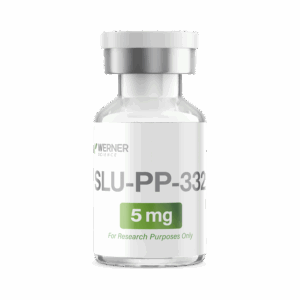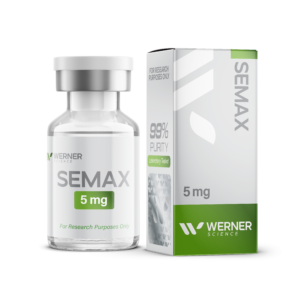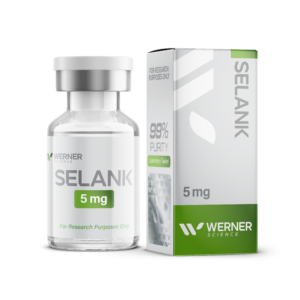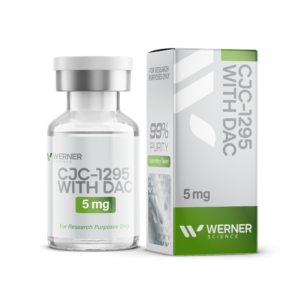Description
Legal Disclaimer
This information has not been reviewed or endorsed by the US FDA. It is provided solely for educational and research purposes. HGH Fragment 176-191 is not approved for medical use, human consumption, or as a therapeutic treatment.
Product Details
- Quantity: 5mg per vial
- Purity: ≥99% (HPLC-tested), Rigorous third-party testing
- Packaging: Secure, sealed, and tamper-proof vials
- Source: Synthesized using advanced peptide synthesis techniques
- Note: This product is sold in lyophilized powder form and must be reconstituted before use.
Overview
HGH Fragment 176-191 is a lab-made peptide taken from a small part of human growth hormone (HGH). It includes the last 16 amino acids (176-191) of the HGH molecule. Researchers study this peptide to see how it may help with fat metabolism and energy use. Unlike full HGH, this fragment does not change blood sugar or growth factor levels. Because of this, scientists focus on its possible role in fat breakdown, weight balance, and metabolism research.
Research Specifics
- Fat Metabolism Studies: Researchers are investigating HGH Fragment 176-191’s role in breaking down fat and supporting lipid metabolism.
- Energy Balance and Metabolic Function: Studies focus on how this peptide may influence calorie use, energy storage, and thermogenesis.
- Growth Hormone Research: Scientists examine how this fragment differs from full HGH, particularly in fat reduction without IGF-1 stimulation.
- Cellular and Molecular Studies: Ongoing research explores its potential effects on mitochondrial function and cellular energy regulation.
Technical Specifications
- Molecular Formula: C78H123N23O23S2
- Purity: ≥99% (HPLC-verified)
- Form: Lyophilized powder
- Storage: Store at -20°C for long-term stability
- Solubility: Requires reconstitution with sterile bacteriostatic water or a suitable solvent before use
For more detailed information on the applications of HGH Fragment 176-191:
- National Institutes of Health (NIH) – Growth Hormone and Fat Metabolism Research – Read more
- Taylor & Francis: Human Growth Hormone Fragment 176–191 Peptide Enhances the Toxicity of Doxorubicin-Loaded Chitosan Nanoparticles Against MCF-7 Breast Cancer Cells – Explore study
- PubMed – HGH Fragment 176-191 Research Publications – Access here
Return To All Research Peptides




Reviews
There are no reviews yet.